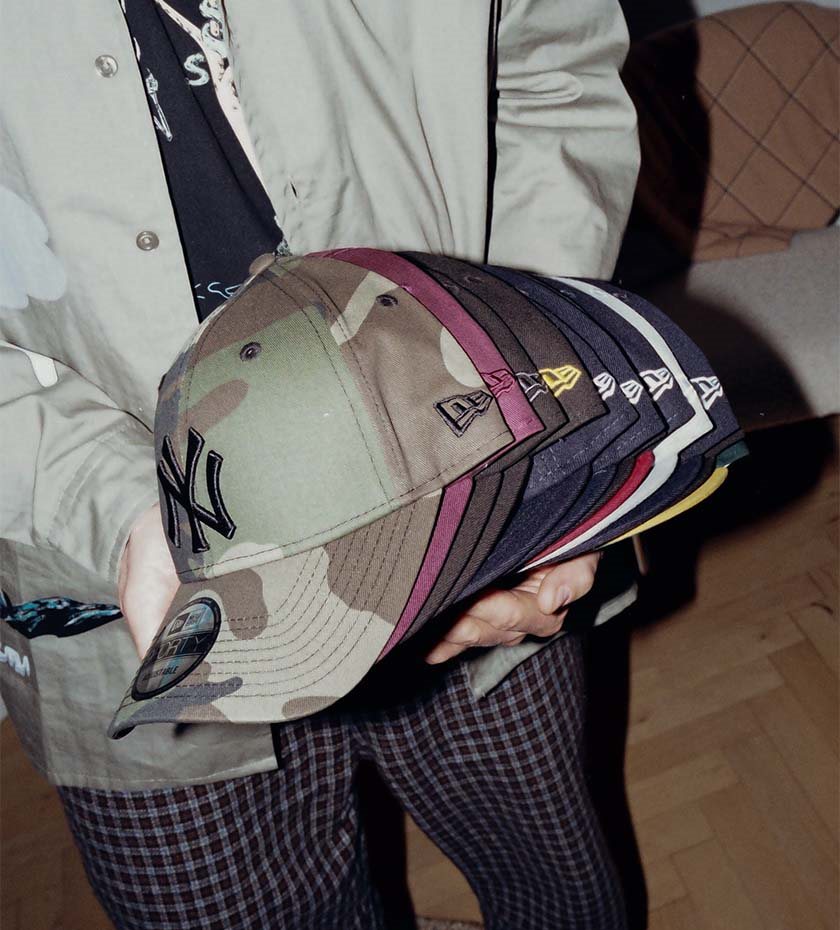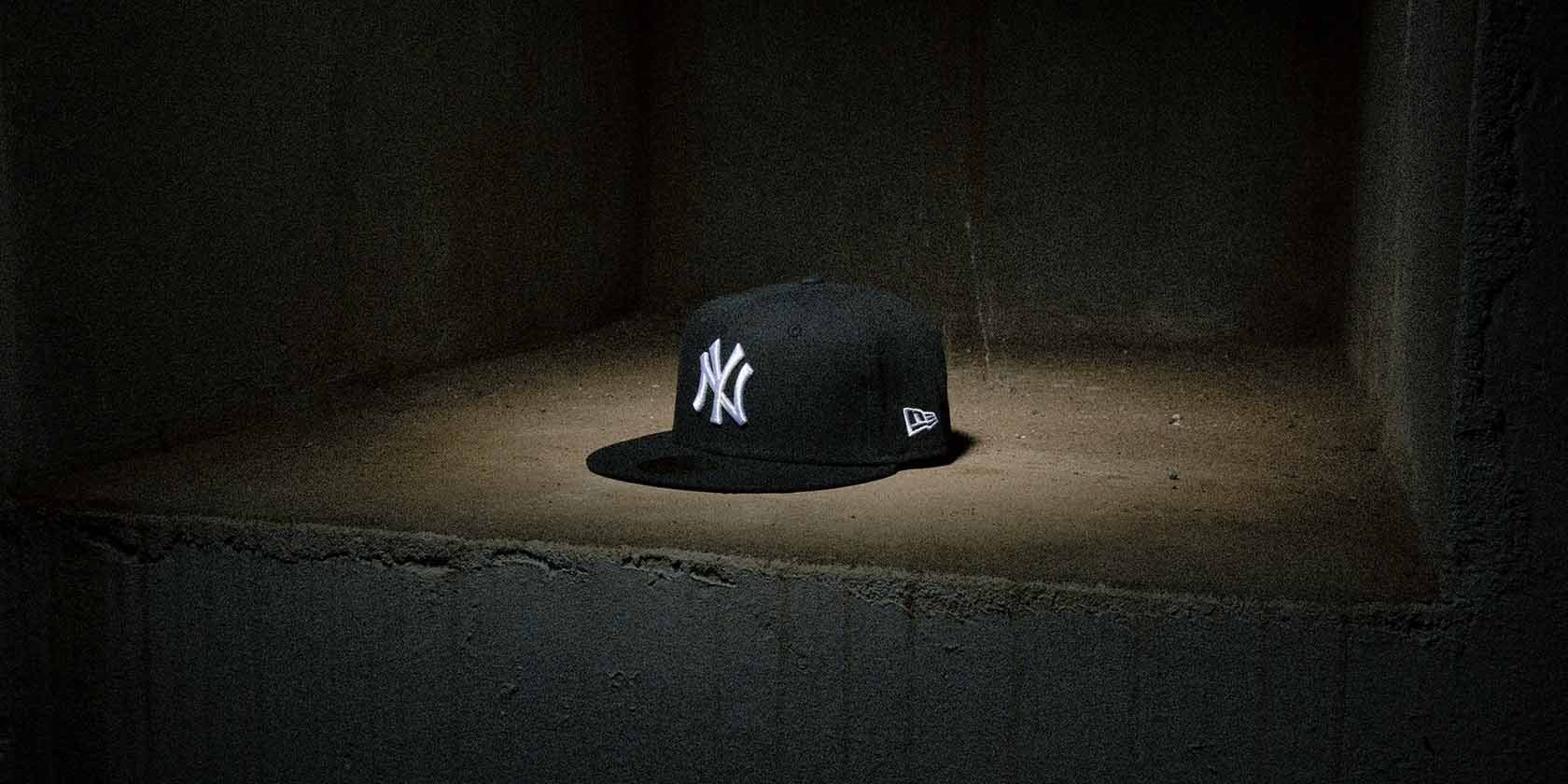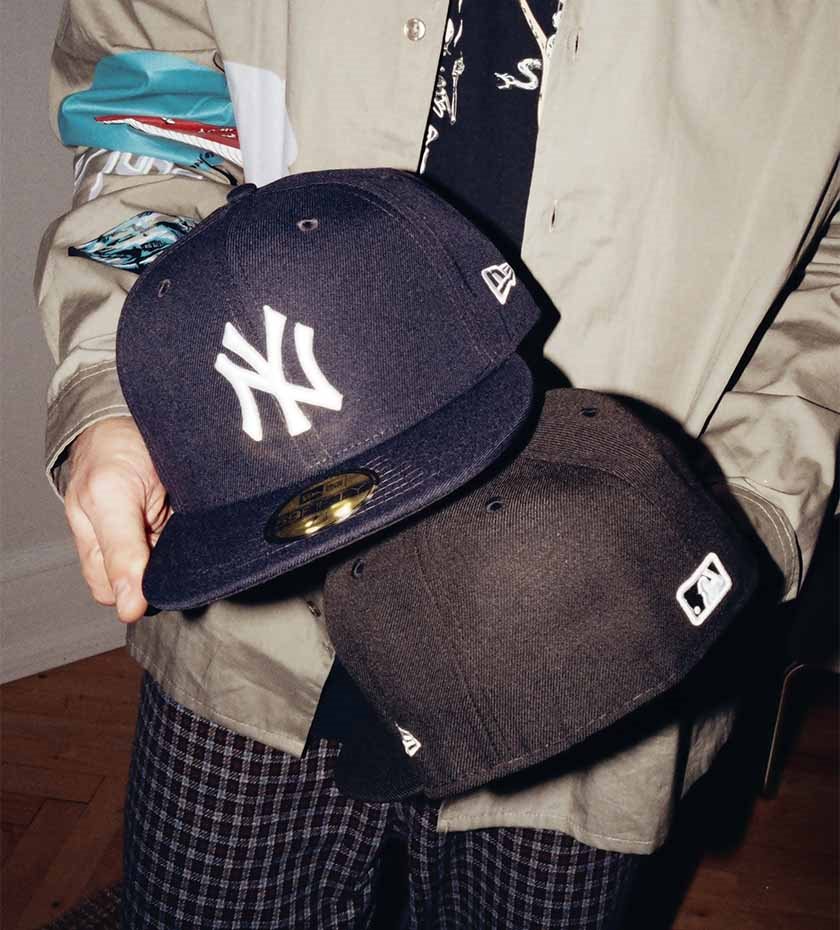From sports uniform to German possession - the history of the baseball cap
We all use it from time to time and to a greater or lesser extent. Some prefer them sporty, others like them as trucker caps, others more streetwise. Some use them to cover lack of hair, some in practical function and some because they think it completes their outfit. But where did the cap as we know it today actually come from?

USA, USA, USA
The history of the baseball cap started, as the name suggests, with baseball, but the headwear made its way to everything from politicians' to celebrities' heads. And we should look in the direction of the United States. The baseball cap is probably close to being synonymous with a piece of American national clothing.
Baseball as a sport dates back to around 1800. The National League was later founded in 1876. Players at the time did not wear uniform, standardized caps. You were allowed to wear whatever type of headgear you wanted, but the common thread was that everyone wore some form of headgear with shade to avoid getting the sun in their eyes. Many baseball players at this time preferred the so-called "boater hat" woven of straw. You may not be familiar with it, but it's probably best compared to something Uncle Donald from Father of Four would wear to the beach. Others preferred something more like a real cap - the pillbox hat. It consists of a cylinder that forms what you wear on your head, with a shield attached to it.
The first cap could be seen at a game in 1849 where the New York Knickerbockers wore a straw cap to keep the sun out of their eyes.

In the 1860s, the Brooklyn Excelsiors team introduced a type more like a real cap, and in 1901 a team logo appeared on the front of a cap for the first time - the Detroit Tigers adorned a cap with an embroidery of a running orange tiger. Moreover, the team had previously emblazoned the front of their cap with the iconic "D" (it's actually in qUINT stores now).
Throughout the 1920s, 1930s and 1940s, various features and details of the caps were continuously changed, bringing it closer and closer to the look we know it for today. Since the 1950s, the baseball cap has had the look we know today.
When the "boater hat" of straw was abandoned and caps were used exclusively, they were traditionally made of wool. In fact, they were made of wool until 2007, when the Major Baseball League changed the standard material from wool to polyester - physical activity with a wool hat on became too hot.
The big breakthrough
Although the cap's appearance has remained virtually unchanged since the 1950s, there have undeniably been many changing attitudes towards it. It should be remembered that headwear has long been commonplace among men and women, but in particular over the last 200 years it has played a significant role as some kind of cultural status marker - the baseball cap being no exception. Remember that in the 1950s and 1960s, it was common for men to wear a nice hat. The cap was for working people, but a new medium, TV, was to change that. It was now possible to watch sporting events on television rather than in the stadium, but people still wanted to show their support for the team they were rooting for. So people bought caps with their team's colours and logo or lettering. Quietly, the caps also moved outside the four walls of the home, so that people could publicly show who they were rooting for.
In the 1960s, some clever companies in the big farming business thought that caps could be used as a form of marketing - the type of caps known today as "trucker caps" - think John Deer and Von Dutch. The most recent example of a trucker cap with a marketing purpose that went around the world in earnest has to be Donald Trump's red "Make America Great Again" trucker cap
Throughout the 1920s, 1930s and 1940s, various features and details of the caps were continuously changed, bringing it closer and closer to the look we know it for today. Since the 1950s, the baseball cap has had the look we know today.
As the cap became commonplace, it was adopted by different subcultures and people personified it. People began wearing it upside down or askew, punks and rappers embraced the cap, and celebrities began hiding their faces from paparazzi photographers under the shade.
From the '00s onwards, it seems the cap has always been there. It has come in all shapes, colours, types and walks of life.

From the world of sport to fashion and mainstream
The cap as we know it today originated in baseball, but over time it has spread to many other sports; tennis, golf, sailing etc. and to uniforms of, for example, the military and police as well as being a permanent fixture in everyone's wardrobe.
As with many things, especially clothing and apparel, that have moved from one subculture or user group to another, the world of music has had a major impact. As we have seen with the Beastie Boys' impact on Adidas and especially the Adidas Superstar and Adidas Forum sneaker models, there have also been individuals in the hip-hop community who have influenced the popular breakthrough of the cap. Again, the Beastie Boys are an important player, but the boys from N.W.A should also be mentioned. They made the Rangers cap a must-have and an icon back in the 1980s and 1990s. Later, Jay-Z has worn the New York Yankees cap several times, and a bit of the lyrics in the song "Empire State of Mind" helps the italicization of the iconic cap along - "I made the Yankees hat more famous than a Yankee can".
What is up right now can fluctuate. A few years ago, the iconic Von Dutch trucker cap reappeared on the fashion scene (and it's still a bit of a ghost), and now it's time for classic baseball caps again. Here at home, you can currently see Danish artists like Kesi rocking fitted baseball caps. He's been spotted several times in the classic New York Yankees cap in navy with white color combination. Perhaps a tribute to the importance of this classic in the hip hop scene and a nod to Jay-Z and New York City's eternal importance in hip hop culture?
The popularity and versatility of the cap is reflected in the extent to which it is produced. Almost everyone owns at least one, and it's big business - New Era alone produces up to 72,000 caps a week - that's almost 4 million caps a year.
Is it time to update your top piece? Find your favourite cap in your qUINT or online at our webshop. There are many options to choose from, whether you have a favourite team, swear by a particular colour scheme, prefer a fitted cap or something completely different. The selection is vast in both colours, models and brands. You're sure to find just the cap you need.












